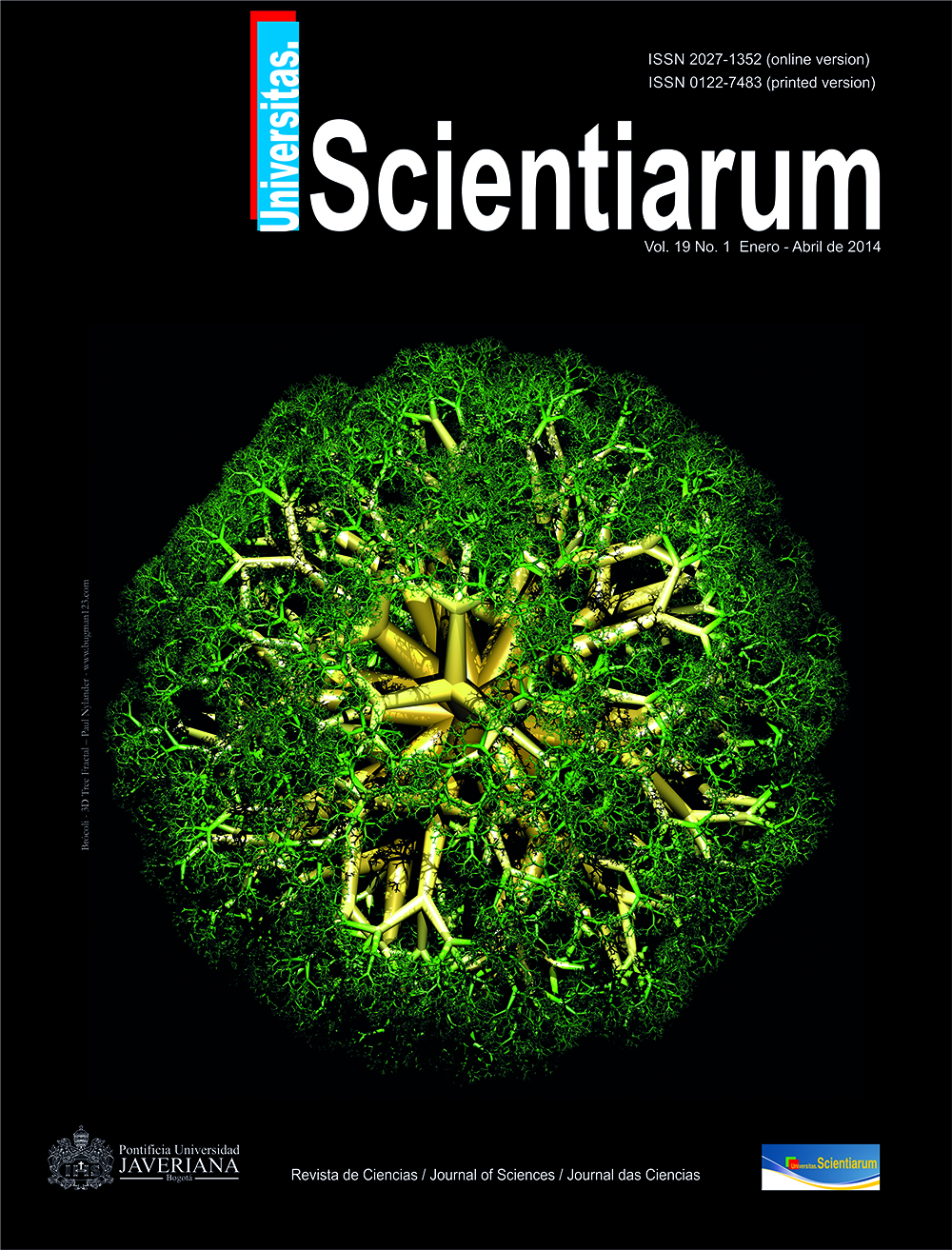Abstract
The diamondback moth (Plutella xylostella) is a major pest of broccoli worldwide. It mainly causes leaf defoliation and generates annual losses of 80%. In this study we evaluated the susceptibility of P. xylostella to entomopathogens Heterorhabditis bacteriophora HNI0100, Beauveria bassiana Bb9205 and Metarhizium anisopliae Ma9236. The methodology was based on the inoculation of third instar larvae of P. xylostella with 5x101, 1x102, 3x102, 6x102 and 1,2x103 IJs/cm2 of H. bacteriophora HNI0100 and evaluated them after 24, 48 and 72 h and 1x104, 1x105, 1x106, 1x107 and 1x108 con/cm2 of B. bassiana Bb9205 and M. anisopliae Ma9236, which were evaluated during two weeks. At a dose of 1,2 x103 JIs/cm2, P. xylostella had a susceptibility to H. bacteriophora HNI0100 of 91,66%. Similarly, B. bassiana Bb9205 and M. anisopliae Ma9236 had a mortality of 95,33 and 99,67% at 1x105 con/cm2. The results suggest that the use of strains of entomopathogenic nematodes and fungi is an innovative alternative for the control of P. xylostella. However, studies on the interaction of nematodes and fungi and Plutella xylostella are necessary.
Univ. Sci. is registered under a Creative Commons Attribution 4.0 International Public License. Thus, this work may be reproduced, distributed, and publicly shared in digital format, as long as the names of the authors and Pontificia Universidad Javeriana are acknowledged. Others are allowed to quote, adapt, transform, auto-archive, republish, and create based on this material, for any purpose (even commercial ones), provided the authorship is duly acknowledged, a link to the original work is provided, and it is specified if changes have been made. Pontificia Universidad Javeriana does not hold the rights of published works and the authors are solely responsible for the contents of their works; they keep the moral, intellectual, privacy, and publicity rights. Approving the intervention of the work (review, copy-editing, translation, layout) and the following outreach, are granted through an use license and not through an assignment of rights. This means the journal and Pontificia Universidad Javeriana cannot be held responsible for any ethical malpractice by the authors. As a consequence of the protection granted by the use license, the journal is not required to publish recantations or modify information already published, unless the errata stems from the editorial management process. Publishing contents in this journal does not generate royalties for contributors.



